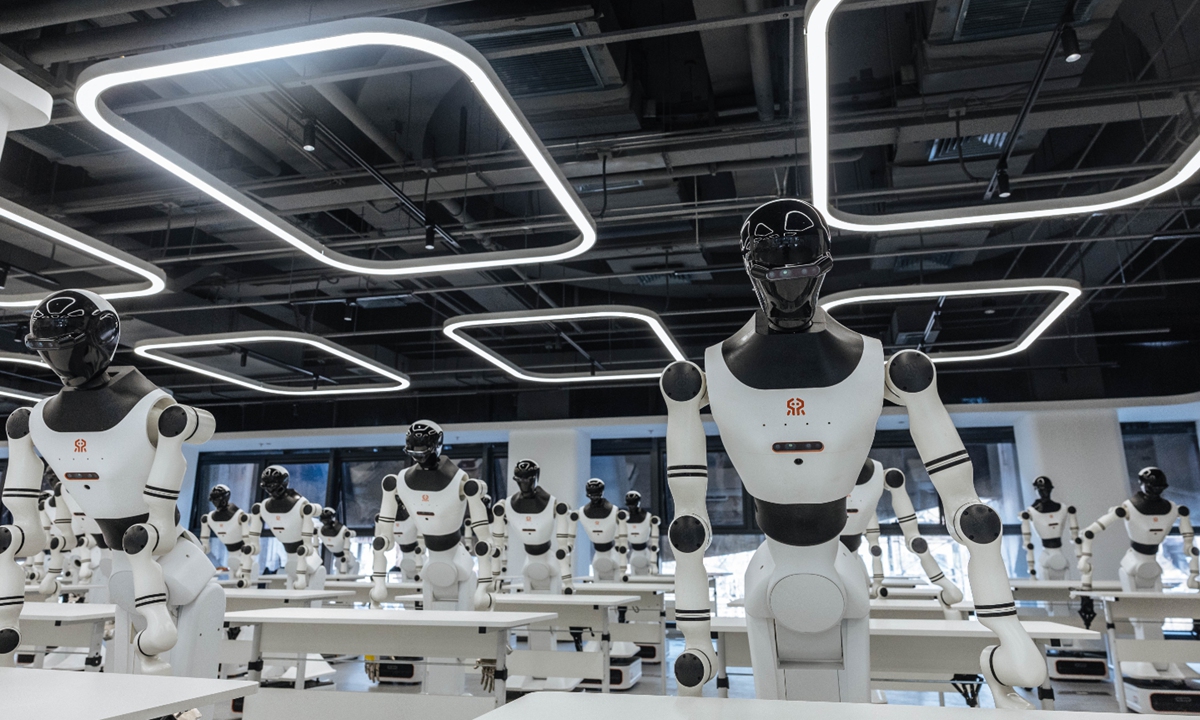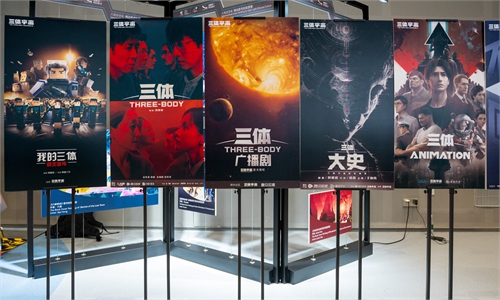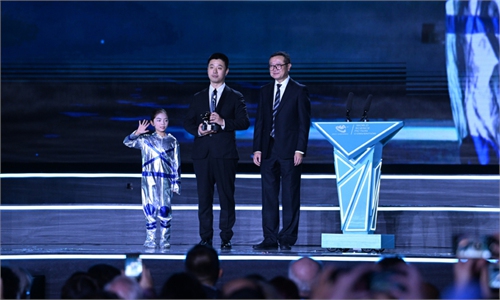ARTS / CULTURE & LEISURE
AI possibly replacing writers in 10-20 years: Liu Cixin
Sci-fi convention reveals steady growth of industry

Photo: Li Hao/GT
The 2025 China Science Fiction Convention is set to come to an end on Monday at Shougang Park in Beijing. It was revealed at the convention that China's science fiction industry achieved a total revenue of 108.96 billion yuan ($15.01 billion) in 2024. Renowned Chinese sci-fi writer Liu Cixin predicted that AI may reshape the landscape of science fiction creation.
According to CCTV, when asked during an interview at the China Science Fiction Convention whether DeepSeek could replace sci-fi writers in the future, Liu replied, "It's unlikely for now, but in 10 or 20 years, it's theoretically possible."
Liu envisions a future where reading could be customized by AI. Readers would provide their preferences, and AI would generate a novel based on them. If the reader isn't satisfied, they could ask for a new version. In such a future, AI-generated writing could even surpass human authors in quality.
"I personally believe we should stop comforting ourselves and confront the impact of technology and the profound upheaval it will bring to our field," Liu said.
Liu had previously agreed with the view that AI technologies like DeepSeek merely process vast amounts of data, generating results through recombination, and so often lack emotion and real-life experience. However, he now realizes that the cognitive gap between humans and AI is not as large as people might think, according to thecover.cn.
While AI can process information and generate content, Liu emphasized that the essence of interest in writing lies in the personal, independent creation of the writer.
"For a writer, the greatest joy lies in independent, personal creation, not in turning writing into a mechanical, craftsman-like process influenced by external forces," he noted. "If I were to create, I probably won't use DeepSeek to assist with the process for now."
Liu's renowned The Three-Body Problem trilogy was the first Asian science fiction novel to win the Hugo Award. His works are widely regarded as a milestone in Chinese sci-fi literature. Several of his novels, including The Wandering Earth and Ball Lightning, have been adapted into films and TV series, helping to propel Chinese science fiction onto the global stage, long before the emergence of AI technologies like DeepSeek.
Just like Liu's works, many Chinese science fiction works stand out for their integration of cultural values, offering a unique perspective on humanity's place in the cosmos. These works reflect the richness of philosophical and scientific perspectives rooted in Chinese values, which possess a distinctiveness that AI can hardly replicate.
According to Liu, China's rapid technological advancements provide a unique "real-world foundation" for science fiction. Breakthroughs in manned spaceflight, quantum communication, and artificial intelligence can all serve as material for sci-fi storytelling. For example, the global effort to save Earth in The Wandering Earth vividly embodies Chinese values within the realm of science fiction.
"The rise of AI is not the end of literature, but rather an expansion of creative dimensions," Chen Tao, a professional in the sci-fi industry, told the Global Times.
Chen said AI will compel human creators to redefine the value of "originality." "Works that truly embody lived experiences, philosophical reflections, and emotional depth will become even more precious in contrast to AI-generated content," he noted.
According to the 2025 China Science Fiction Industry Report released at the convention, China's sci-fi industry recorded a total revenue of 108.96 billion yuan in 2024. The original creative capabilities of sectors such as sci-fi literature, derivative products, and sci-fi tourism stood out. Notably, the sci-fi reading industry generated 3.51 billion yuan in revenue, marking a 10.7 percent year-on-year growth and maintaining a steady upward trend since 2017.
China's sci-fi industry is entering a critical phase of integration and innovation-driven development, positioning itself as a key growth driver in the global sci-fi landscape. With continuous technological advancements, policy support, and increasing market demand, the Chinese sci-fi industry is expected to accelerate collaborative innovation across its entire value chain and further optimize its ecosystem, according to the China Writers Network.
"In the context of further integration between the sci-fi industry and science education, the educational significance of sci-fi works is increasingly prominent, becoming an important vehicle for cultivating future technology innovation talents," senior science education expert Zhai Yongxia told the Global Times at the convention.
"Sci-fi elements have already been incorporated into curriculums in science education to stimulate students' imagination and innovation."



